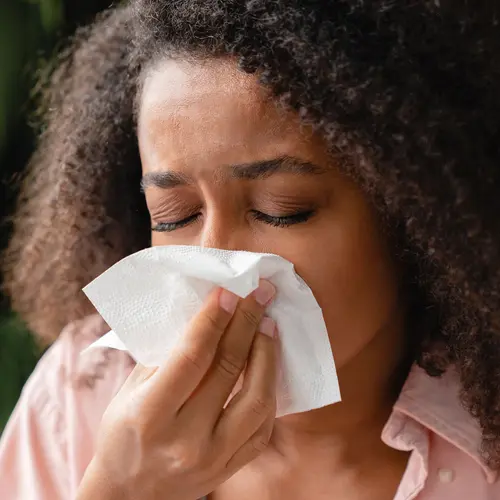You need your medicine to manage your health. They can make a huge difference in your life. But sometimes, people have an allergic reaction to a medicine.
When you have an allergy, your immune system mistakenly sees something that’s harmless as an invader. Your body responds with certain chemicals, such as large amounts of histamine, to try to get rid of it.
If you think you have a drug allergy, tell your doctor. There may be another treatment you could try instead.
Symptoms
Even in people who aren't allergic, many drugs can cause issues like an upset stomach. But during an allergic reaction, the release of histamine can cause symptoms like:
- Hives
- Rash
- Itchy skin
- Itchy eyes
- Congestion
- Swelling in the mouth and throat
A more severe reaction, called anaphylaxis, may include:
Anaphylaxis is a life-threatening emergency and can lead to shock and loss of consciousness.
Symptoms of a drug allergy may start right after you take it. But some take hours, days, or weeks to appear. Some people have a reaction the first time they take a drug, and others might take the drug several times before a reaction happens. And you can develop an allergy to something at any time -- even a drug you’ve taken safely for years.
Most of the time, a bad reaction to a drug doesn’t mean you have an allergy. Side effects are common, especially as your body gets used to a new medication. If it’s a side effect, rather than an allergy, you’re more likely to have:
- Nausea
- Lack of energy
- Muscle aches
- Hard to sleep
- Coughing
- Headache
- Stuffy nose
- Stomach cramps
- Diarrhea
- Constipation
- Ringing in the ears
- Easy bruising
What Are the Most Common Drug Allergies?
Anybody can be allergic to any drug. That includes prescription medications and ones you can get over the counter. Penicillin and other similar antibiotics are the drugs most people are allergic to. Other meds commonly found to cause allergic reactions include:
- Sulfa drugs
- Barbiturates, including mephobarbital and phenobarbital
- Anti-seizure drugs, including carbamazepine, chlorpromazine, ethosuximide, lamotrigine, phenytoin, and zonisamide
- Pain medications like aspirin, ibuprofen, naproxen, and codeine
- ACE Inhibitors including captopril, enalapril, fosinopril, and lisinopril
- Contrast dyes used in X-rays and MRIs
- Echinacea and other alternative and herbal medicines
Diagnosis
Your doctor will talk to you about your medical history and symptoms. They’ll want to know what you took, whether you’ve ever had a drug reaction or other allergies, and whether you have other medical conditions. Take note of how quickly your symptoms appeared, whether they’ve changed, and whether anything has helped.
If they think you might be allergic to an antibiotic, such as penicillin, they may give you a skin test to confirm it. If you’ve had a serious skin reaction, your doctor may run blood tests to check how your organs are working and to see if there are any other signs of an allergic reaction.
But skin testing doesn’t work for all drugs, and in some cases it could be dangerous. If you've had a severe, life-threatening reaction to a particular drug, your doctor will simply rule out that medicine as a treatment option for you. Getting an allergy test to find out if the severe reaction was a "true" allergic response isn't needed if there are other drug options.
Treatment
The first goal is to ease your symptoms. For instance, medicines such as antihistamines, and in some cases, corticosteroids, can often control rash, hives, and itching.
For coughing and lung congestion, your doctor may prescribe drugs called bronchodilators to widen your airways.
For anaphylaxis symptoms, you may need a shot of epinephrine, and you definitely need emergency medical care, even if those symptoms stop after you take epinephrine.
Sometimes, doctors use a process called desensitization to treat an allergy to penicillin or other drugs. Over time, you’ll get shots of tiny amounts of penicillin, with increasingly larger amounts until your immune system can handle the drug. You'll probably only get this procedure if there aren't any other medicines that can treat your condition.
If you're severely allergic to certain antibiotics, there should be alternatives that your doctor can prescribe.
How Can I Be Prepared?
If you know you have a drug allergy, memorize the name of that drug, both brand names and generic name. Tell all your health care providers before you get any type of treatment, including dental care.
It’s also a good idea to carry a card or wear a special bracelet or pendant that identifies your allergy, in case of emergency.
Know what to do if you have an allergic reaction. If your doctor prescribes medication for emergencies, like an EpiPen, make sure you always carry two and you know how to use it.

